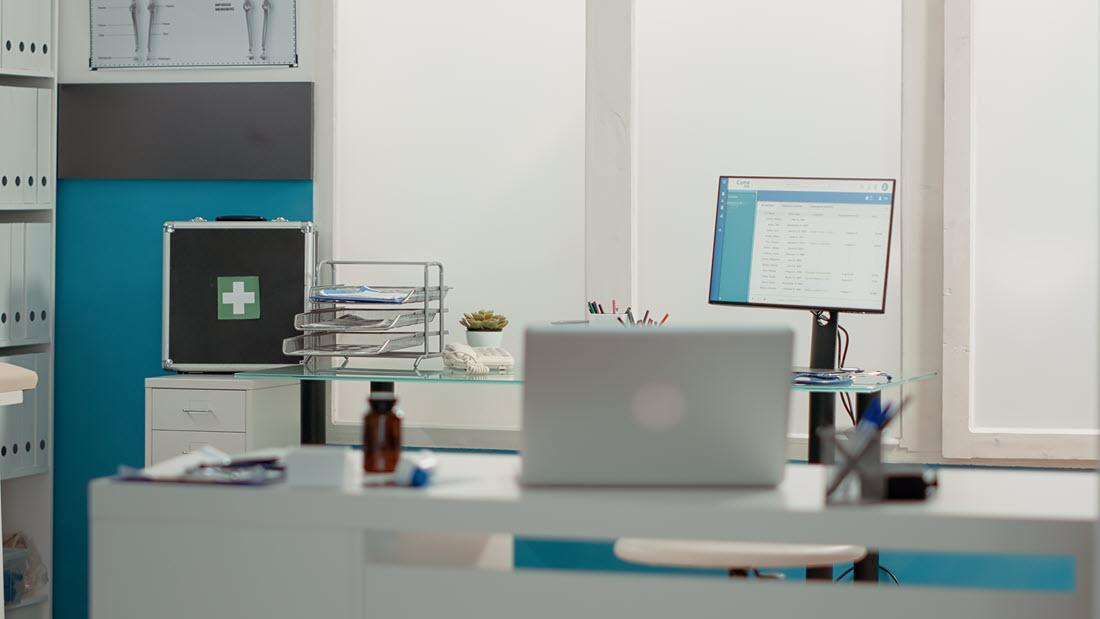Best Practices to prevent data breach for small medical offices.
To minimize the risk of a data breach and protect the security and privacy of protected health information (PHI), a small medical office can adhere to the following best practices:
-
Perform regular security risk assessments:
In order to identify any potential weak spots in the practice’s physical environment, systems, and operational processes, regular risk assessments need to be conducted. Install the required safeguards to address identified risks and maintain continuing Health Insurance Portability and Accountability Act (HIPAA) compliance.
-
Implement durable access controls:
By using secure passwords, multi-factor authentication, and role-based access controls, you can restrict the use of PHI to only those who have been granted authorization and truly need it.
-
Encrypt PHI:
Encrypt PHI both at rest (on storage devices) and in transit using industry-standard encryption techniques, such as AES-256. (while being transmitted across networks).
-
Maintain up-to-date software and systems:
Maintain current software and systems to address known vulnerabilities, we often update and patch software, operating systems, and programs. Implement a vulnerability management program to recognize and address potential risks.
-
Secure network and wireless configurations:
Use strong encryption techniques (such as WPA3) for wireless networks and set up secure networks and wireless configurations. Firewalls should be set up to restrict illegal traffic. Make use of intrusion detection and prevention systems (IDS/IPS) for keeping an eye out for threats and taking action.
-
Train employees on security awareness:
Conduct frequent security awareness training for staff members on subjects like Health Insurance Portability and Accountability Act (HIPAA) compliance, spotting phishing scams, and protecting the privacy and security of PHI. Encourage the practice of adopting a security-conscious culture.
-
Secure mobile devices:
Use mobile device management (MDM) tools to impose security guidelines, enable encryption, and allow remote device wiping on mobile devices that access or store PHI.
-
Implement physical security measures:
Protect sensitive data-containing places with access control systems, keep track of visitor access controls and logs, and keep an eye on facilities with surveillance cameras and alarm systems.
-
Manage third-party vendor risks:
Carry out extensive risk analyses of third-party vendors and develop legal agreements, such as Business Associate Agreements (BAAs), to specify security criteria and obligations for third-party vendors that access PHI.
-
Develop and maintain incident response and business continuity plans:
Create plans for responding to issues with security and recovering from catastrophes to ensure that the practice can address breaches or other events as soon as they occur and minimize their impact.
-
Regularly back up data:
Regularly back up your PHI and other important data, and store backup copies offsite or in the cloud. To ensure that backups can be successfully restored if necessary, test them periodically.
-
Monitor and audit system activity:
Use monitoring and auditing technologies to track who has access to PHI and other sensitive data, identify illegal conduct, and take fast action in the event of a security problem.
A small medical office can significantly reduce the risk of a data breach, protect patient privacy, and keep compliance with HIPAA and other relevant laws by following these best practices. Check this article, about how DP Tech Group can help you in your quest for Health Insurance Portability and Accountability Act (HIPAA) compliance.


